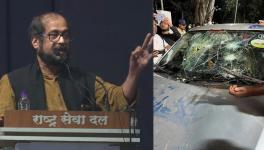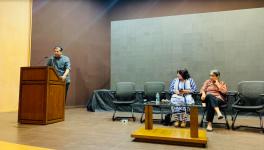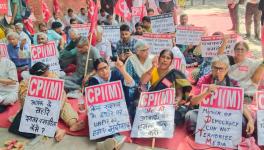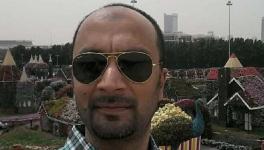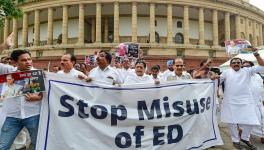The Killing of Journalist Shashikant Warishe
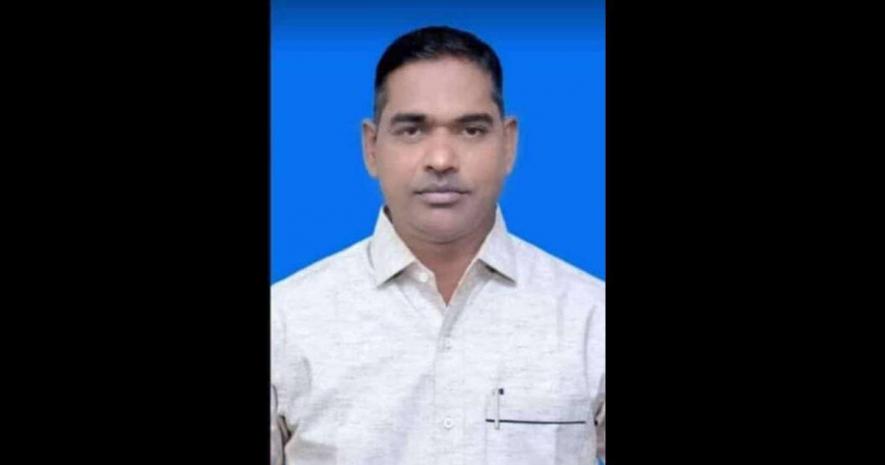
Journalist Shashikant Warishe. Image Courtesy: Twitter
The farmers of the Konkan region of Maharashtra have a long history of struggle. On 22 November 2005, 400 farmers blocked officials of the Nuclear Power Corporation of India from entering the Madban village in this region. It was one of the villagers earmarked for acquisition to set up the Jaitapur nuclear plant. Protesting under the banner of the Konkan Bachao Samiti and the Konkan Vinashkari Prakalpa Virodhi Samiti, gritty farmers have kept their agitation alive for over 17 years. These groups have once again joined hands to oppose setting up the Ratnagiri Refinery & Petrochemicals Ltd (RRPCL), jointly promoted by Indian Oil, Bharat Petroleum and Hindustan Petroleum and the Saudi Aramco group that has committed $44 billion for this project.
The RFPL complex is expected to cover an area of over 15,000 acres and will come up in Barsu village in the Ratnagiri district of the Konkan region. The State government has promised villagers of Ratnagiri several thousand jobs instead of this project.
The farmers here are not willing to buy the government’s promises. The picturesque district of Ratnagiri is wedged between the Sheshadri hills on one side and the Arabian sea on the other and is one of the most fertile agricultural belts in the country, growing the famous Alphonso mango and also large quantities of cashew. The Konkan region produces six to seven lakh tonnes of mangoes yearly, fetching revenue of over Rs 600 crore for the State government. The farmers rightfully fear that pollution from the refinery will destroy their agriculture and adversely impact marine life.
Just as they had protested the setting up of the Jaitapur nuclear facility, they are up in arms at seeing their livelihood and agricultural land destroyed by the setting up of this mega refinery. “Why does the Modi government not shift this project to Gujarat?” is often repeated by the farmers in this region.
Journalist Shashikant Warishe wrote extensively on the farmer’s agitation working as a stringer for a local Marathi newspaper Mahanagari Times. Constantly highlighting their grievances, enough pressure was created by the regional newspapers on the earlier Udhav Thackeray government to get the site of the refinery shifted from Nanar to Barsu. From the start, the State government, headed by Eknath Shinde and remote-controlled by Devendra Fadnavis, had adopted a tough line against these protests. In a Facebook Live from Davos, Industry Minister Uday Samant highlighted how the State government has signed MoUs for investments worth over one crore rupees, claiming this would help generate over one lakh jobs. He also emphasized how the state government was determined to ensure industrial development in every district.
The farmers were unconvinced and kept up their opposition to the refinery, which Shashikant Warishe duly reported.
“We are paying the price for this agitation,” said Amol Bole, one of the leaders of this agitation. Bole belongs to Shivankhurd village in Ratnagiri district and points out how protests in his village have been on for seven years. To clamp down on the agitators, police have sought to implicate leaders by filing criminal charges against them. “I own 15 acres of land where I grow mango and cashew nut. Why should we farmers be forced to give up our land,” asked Bole.
Bole admitted that notices for land acquisition have not yet been issued to farmers but the local bureaucrats have informed him that they are very much on the anvil.
One week before Warishe’s murder on 7 February, Deputy Chief Minister Devendra Fadnavis visited Ratnagiri and issued statements that people saw as a veiled warning at a public function. It was that no one would be allowed to stand in the way of setting up the RRPCL refinery. Samant also allegedly echoed this threat.
The immediate provocation for Warishe’s death was allegedly an article that he wrote, titled, “Photo of a Criminal on a Banner Alongside PM, CM and DCM”. The alleged criminal he was alluding to was Pandharinath Amberkar, a local property dealer who had three FIRs registered against him and was known to attack anyone who voiced their opposition to the refinery. Though he is a worker with the local unit of the BJP, the party has distanced itself from him following his alleged murder of Warishe.
Just three years ago, he had reportedly grievously injured an activist Manoj Mayekar by hitting him with his SUV, but Mayekar managed to escape with his life though he ended up spending the next two weeks in a hospital in Kolhapur. Amberkar also assaulted an activist in court; shockingly, he was not arrested after this incident.
Amberkar chose to adopt the same tactics he had used with Mayekar. Warishe was waiting to refuel his motorcycle near a petrol pump when he ran down Warishe and dragged his body for several metres to ensure he was dead. This heinous crime was committed in full view of the public. He was arrested and charged with murder under Section 304 ( punishment for culpable homicide not amounting to murder), but this was changed to culpable homicide only after local environmentalists and protestors insisted with the cops that this was indeed a case of murder.
An unconscious Warishe was rushed to hospital, where he died the following day. He was the sole breadwinner of his family, which comprised his elderly mother and 19-year-old son. Warishe lived in Kasheli village in the Ratnagiri district, around 20 km from Basrsu.
On hearing of Warishe’s death, the Shiv Sena (UBT) MP Sanjay Raut, a journalist and editor, claimed it was part of a larger conspiracy. In a statement, he had said that Warishe had been exposing several vital issues relating to the setting up of the refinery and had earlier also received death threats.
Other activists also said as much. Bole said, “He had told many of us that he had been offered a substantial sum if he agreed to stop his exposures but had turned it down. After this, he said he also received death threats.”
It is well known that local traders have bought up large tracts of land around the village of Basrsu and are lobbying to set up the refinery. Raut also claimed he would reveal the details of this list of businessmen who had made these purchases in due time.
His murder has sent shock waves to his already embattled colleagues, who are too intimidated to talk about it. Said one journalist on condition of anonymity, “There are big fish involved in this murder but no one dares write about them. Farmers here are not opposed to eco-friendly projects but do not want projects that will ruin their agriculture.”
Struggles like the one in Nanar and now in Barsu are taking place across Maharashtra, as people do not want their agricultural land taken over by industries and mines. The proposed Jaitapur nuclear power plant has earmarked taking over land belonging to the five fishing villagers of Madban, Varliwada, Karel, Niveli and Mithgavane. The refinery will involve further takeovers.
Journalists are being increasingly targeted by the land, sand, liquor and water mafia and according to the study titled “Getting Away with Murder”, 40 journalists in India were killed between 2014 and 2019. The majority of journalists killed are working as either staffers or stringers for regional language publications receiving no support from the local administration and police. There have been practically no convictions in these killings. Police investigations have remained indifferent, while the bereaved families are too intimidated to follow up and see that the guilty are brought to book. Investigative journalists like Warishe are the most vulnerable, as are their families, which receive very little financial compensation.
But these journalists are doing groundbreaking work and reflect a reality that is no longer being shown on television or in our mainstream newspapers. This silence explains why, after the initial hue and cry following his murder, most of his colleagues, though grieving, do not want to make public statements against those they think are behind his death.
The author is an independent journalist. The views are personal.
Get the latest reports & analysis with people's perspective on Protests, movements & deep analytical videos, discussions of the current affairs in your Telegram app. Subscribe to NewsClick's Telegram channel & get Real-Time updates on stories, as they get published on our website.










